Results: Sleep Deprivation leads to mental sluggishness
Published on 11/24/2017
Few things are worse for your health than long-term sleep deprivation. The sleep deprived have a higher risk of quite a number of conditions including heart disease, hypertension, type 2 diabetes, obesity, and depression. Lack of sleep also has a deleterious effect on the brain, particularly on memory and cognition. Read the full article here:
http://bigthink.com/philip-perry/how-sleep-deprivation-leads-to-mental-sluggishness?utm_source=pocket&utm_medium=email&utm_campaign=pockethits
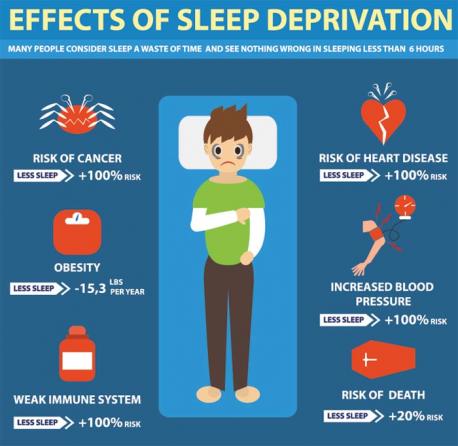
QUESTIONS
GO to COMMENTS
Comments
1.
1.
Besides harried work schedules and our obsessions with our smart phones, sleep disorders are prevalent, with 50-70 million American adults experiencing one. Sleep apnea and insomnia are two of the most common examples. The issue has gotten so serious that the CDC has dubbed insufficient sleep a public health problem. 1 in 3 adults don't get enough sleep, a CDC report last year found. Do you suffer from sleep deprivation?

Yes
33%
665 votes
No
51%
1041 votes
Undecided
16%
333 votes
2.
2.
1 in 3 US adults don't get enough sleep, which affects their health and cognition. Do you feel you get enough sleep?
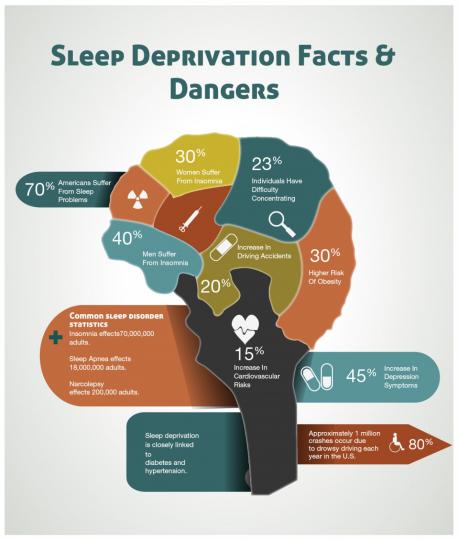
Yes
42%
847 votes
No
43%
868 votes
Undecided
16%
324 votes
3.
3.
When the brain is sleep deprived, information isn't encoded by neurons as it should be, which is why our reaction time is slowed. It's like when a sleepy driver misses the fact that a person has stepped into the road. "The very act of seeing the pedestrian slows down in the driver's overtired brain," Fried said. "It takes longer for his brain to register what he's perceiving." The next phase is to come to understand the mechanism completely. "Slow, sleep-like waves disrupted the patients' brain activity and performance of tasks," Fried said in a press release. "This phenomenon suggests that select regions of the patients' brains were dozing, causing mental lapses, while the rest of the brain was awake and running as usual." Fried likened sleep deprivation to being drunk. "Yet no legal or medical standards exist for identifying overtired drivers on the road the same way we target drunk drivers," he said. Do you consider dangerous to drive when you didn't sleep enough?
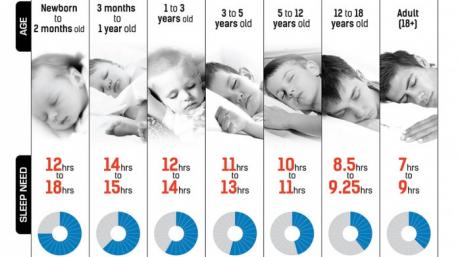
Yes
70%
1429 votes
No
13%
258 votes
Undecided
17%
352 votes
4.
4.
On a societal level, sleep deprivation accounts for lost productivity, medical errors, and car and industrial accidents. One study showed that medical students doing their residency, which sometimes includes as long as 30-hour shifts, are more prone to mistakes. Do you have enough time to sleep as much as you need?
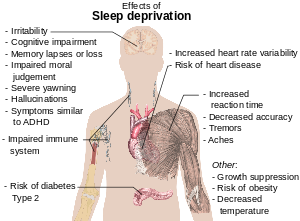
Yes
59%
1208 votes
No
25%
503 votes
Undecided
16%
328 votes
5.
5.
Do you consider sleeping properly as an important step to staying healthy?
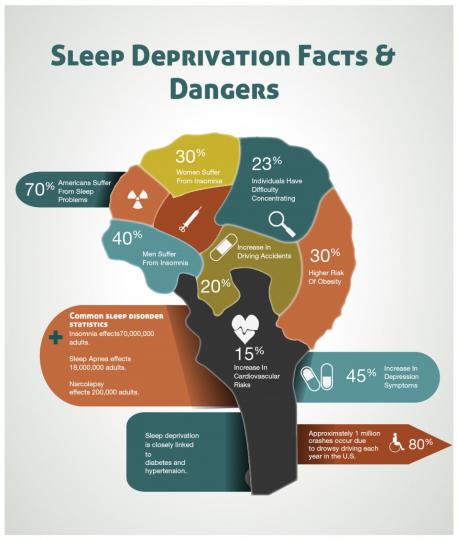
Yes
81%
1659 votes
No
7%
151 votes
Undecided
11%
229 votes
COMMENTS


